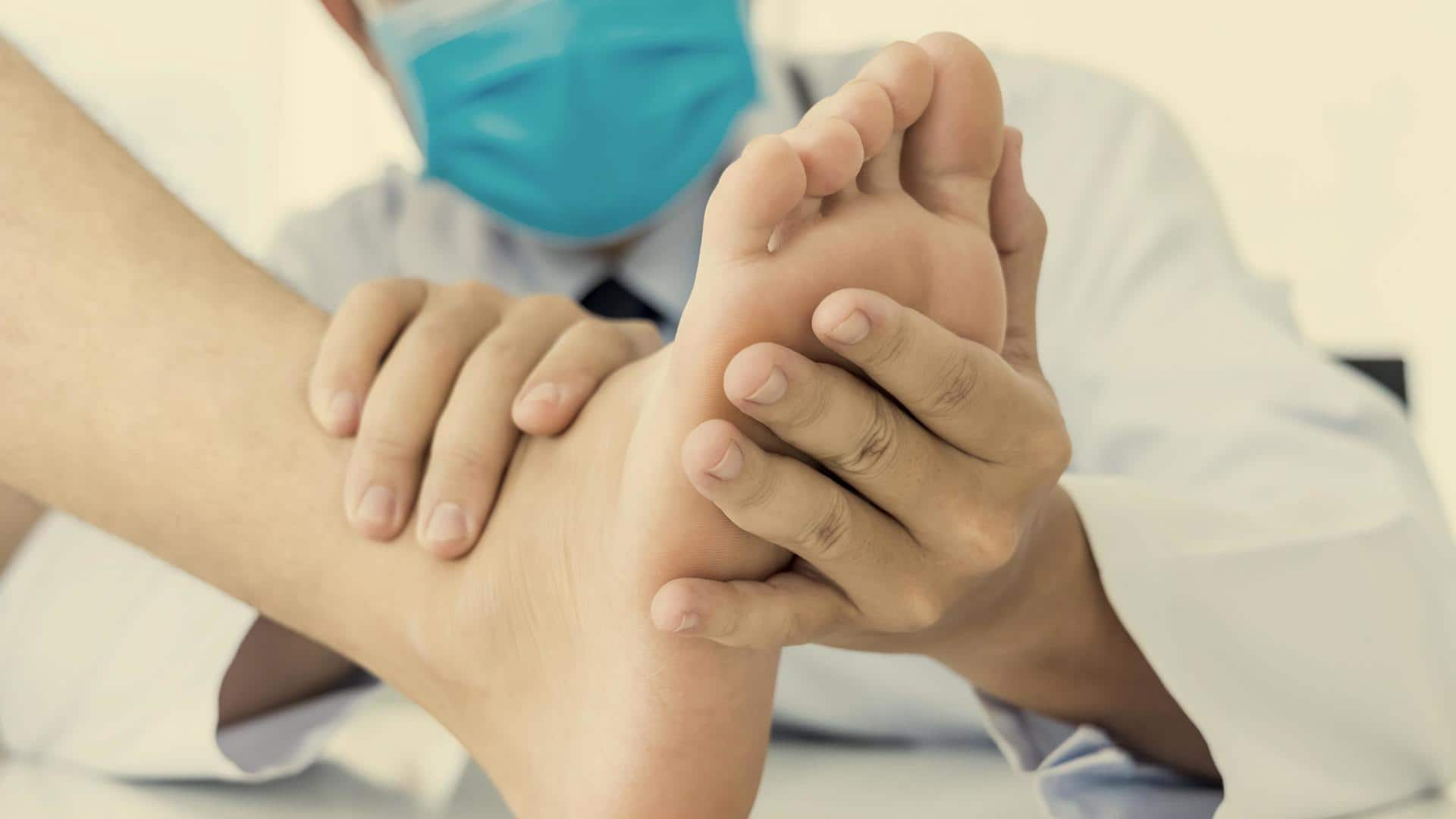
What do your feet tell about your health
What's the story
Your feet help you stand tall, walk long distances, and show off your awesome dance moves. But did you know your feet can also tell you about your health? Well, yes, they give hints about how healthy you are. Let's take a closer look at your feet and find out what they can tell about your overall health & wellness.
PAD
Balding toes
Bald or hairless toes could indicate poor blood circulation. Poor blood flow to the feet and toes is often caused by peripheral arterial disease (PAD). When plaque accumulates in leg arteries, it hampers blood flow, leading to the development of PAD. If ignored, PAD raises the chances of experiencing a heart attack, or stroke, or even puts you at risk of amputation.
Morning
Morning foot pain
Burning or shooting foot pain that happens when you take your first few steps out of bed can indicate arthritis, which causes joint inflammation and discomfort, even in small foot joints. Morning foot pain can also stem from plantar fasciitis, an inflammation of the tissue connecting the heel and toes. You can try these yoga poses to get relief from Arthritis.
Cold feet
Cold feet
Do you experience cold feet often? It might be because of poor blood flow. This can happen if you smoke, have high blood pressure, or suffer from heart disease. Another reason could be nerve damage from uncontrolled diabetes. Conditions like hypothyroidism or anemia could also be the culprits. Seek medical advice to determine if there are any underlying factors contributing to this condition.
Colored toes
Red, white, and blue toes
Raynaud's Syndrome can make your toes change color - they can turn white, then bluish, and finally go back to their normal tone. This happens because the arteries suddenly narrow, causing something called vasospasms. Stress or temperature changes can trigger these spasms, but they usually don't cause other health problems. Want to know more? Here's all you need to know about Raynaud's Syndrome.
Clubbing
Clubbed toes
Clubbing is when the shape of your toes, and sometimes fingers, changes. The nails become rounded on top and curve downward. Lung disease is usually the main cause, but it can also be linked to heart disease, liver or digestive disorders, and certain infections. In some cases, clubbing can run in families even without any underlying disease.